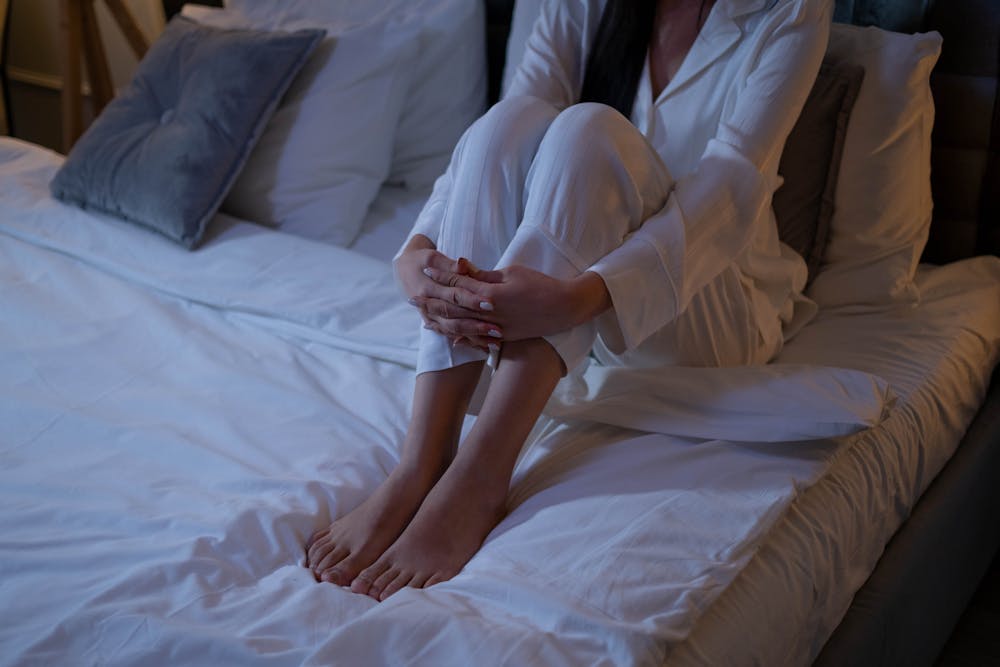7 Reasons Why You Cannot Sleep at Night
One of the absolute favorite things in everyone’s life is to have a good night’s sleep as sleeping well is like drinking enough water.
Getting good sleep is essential to our well-being and happiness When we didn’t get proper sleep because of stressful life our bodies feel the effects and cause our mind to race.
You may suffer from sleep disorders if you had a prolonged period of not getting proper sleep. Our physical and mental environments influence our sleep quality.
Sleep woes can be frustrating and exhausting whether it’s waking up in the middle of the night or having trouble falling asleep in the first place.
Long-term sleep deprivation can be critical to overall health as it leads talk heart disease, depression, and obesity.
Anyone who has a restless night knows how irritable, groggy, and unproductive the next day feels.
Moreover, waking up in the night is a form of insomnia, and cause can be anything from stress to eating spicy foods too close to death.
Insomnia can sometimes hit you badly and be a serious problem that needs medical attention.
Here are seven reasons why you can’t sleep a night
• Stress, anxiety and depression:
Sleep and mental health have a cyclical relationship, depression and anxiety can worsen sleep quality, and sleep deprivation, in turn, worsens mental health.
It is impossible to fall back asleep when you wake up at night with anxious racing thoughts. Depression is associated with waking up early and is unable to drift off.
Furthermore, high cortisol levels present in the body due to stress make our minds more alert and keep us lying awake.
• Caffeine:
Consuming caffeinated teas or coffee is a common stimulant that prevents one from falling asleep. Taking stimulants or drinking caffeinated beverages after the afternoon can lead to sleep disruption. So, you should try setting a caffeine curfew or cutting out coffee at least six hours before you fall asleep.
• Temperature:
If the temperature of your room or internal body temperature may be too cold or hot. Body temperature keeps on fluctuating throughout the day which can be a cause of waking up in the night as body temperature rises in the morning and early afternoon as night comes it falls and it gives the body a signal that it is time to sleep. That’s why when you’re sleeping if the temperature of your room or body raises your body thinks that it’s time to wake up. The ideal room temperature is between 60-67 degrees Fahrenheit.
• Sleep disorders:
One may be suffering from sleep disorders such as sleep apnea which leads to shallow and troubled breathing during sleep. Sleep apnea causes daytime fatigue, restless nights, and also a host to other health issues stemming from long-term deprivation.
Some other sleep disorders include restless leg syndrome, narcolepsy, bruxism, and sleepwalking. If you suspect any of the conditions, speak right away to your doctor.
• Lights and Sounds:
Our bodies prefer quiet, dark rooms to sleep in. If one lives on a noisy street or has bright lights shining in the room or using a phone before sleeping can lead to sleepiness.
• Hormonal changes:
Fluctuating levels of progesterone and estrogen during or before periods or throughout perimenopause can sabotage sleep.
• Getting up to go to the bathroom:
Nighttime bathroom trips interrupt many people’s sleep. Most people wake up much time throughout the night to relieve themselves, and if one kept awake for a long time after that can disrupt one’s sleep cycle.
Conclusion:
Don’t think too much as your good health matters, stop taking caffeinated drinks before 6 hours of sleep, try to avoid using your phone in bed. If you suspect any sleep disorder do consult your doctor.

